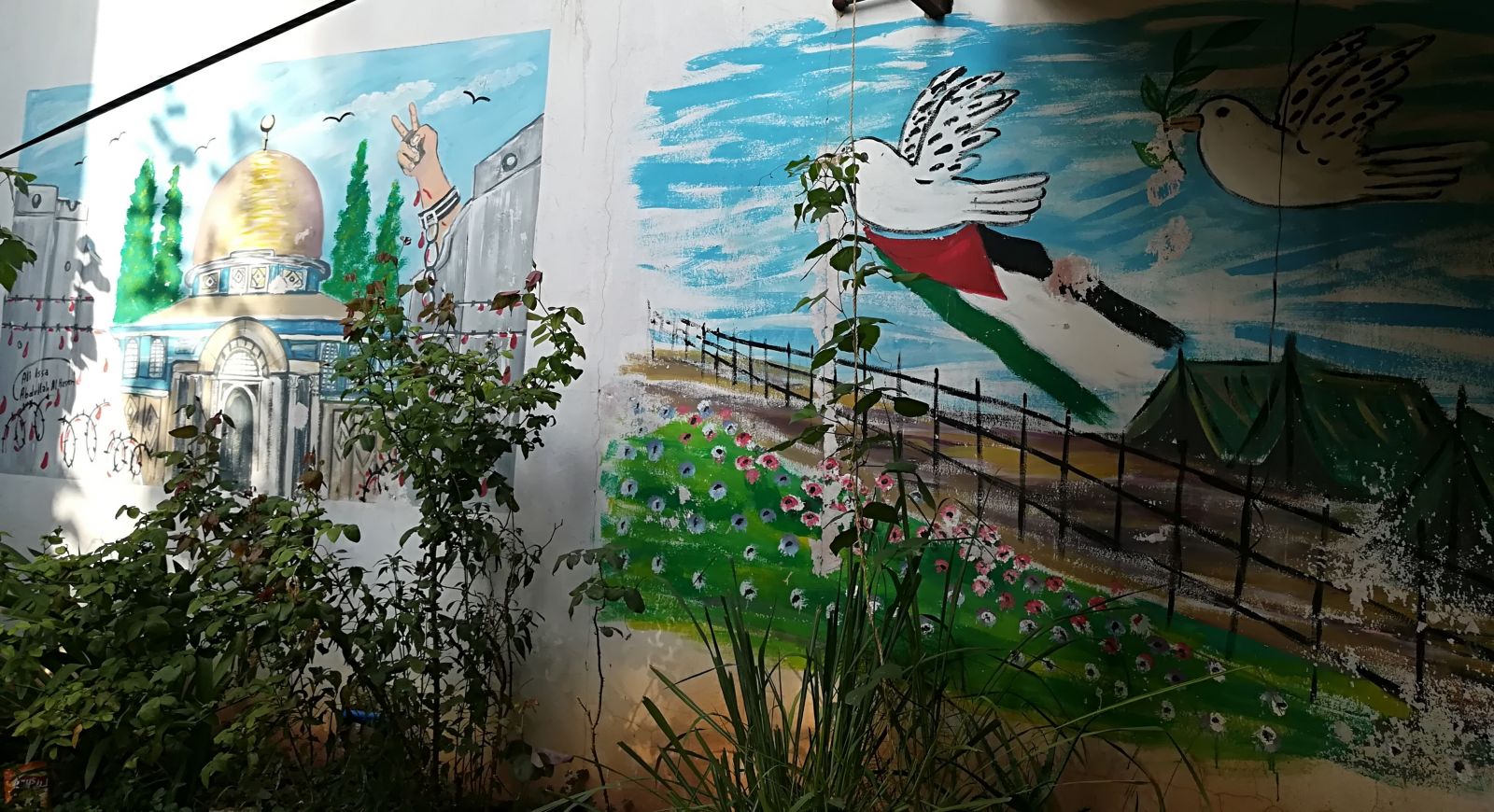Palestina e Israel: Legados e Horizontes
Editorial

Em 29 de novembro de 1947, a Assembleia-Geral da Organização das Nações Unidas (ONU) adotou a Resolução 181(II) com o Plano de Partilha que se tornaria a solução preferida por parte dos seus membros para a situação na Palestina, já em ebulição. A população palestiniana nativa rejeitava a ideia de divisão do território, entendendo o movimento sionista, que defendia a criação de um Estado judeu, como um projeto colonial respaldado pelos interesses da potência imperial, o Reino Unido, conforme constatam os relatórios das Comissões de Inquérito do Mandato Britânico. Mesmo assim, o Estado de Israel foi estabelecido em 1948, num processo violento que os palestinianos denominam de Nakba - ou Catástrofe, em árabe -, que resultou na destruição de quase 500 vilas, na morte de cerca de 15 mil pessoas, no deslocamento forçado de mais de 750 mil e, hoje, em mais de 6 milhões de refugiados, segundo a ONU. Os países vizinhos reagiram invadindo o território, fazendo eclodir a Guerra Árabe-Israelita (1948-1949), a primeira de uma longa lista de conflitos bélicos na região. Entre estes, a Guerra de 1967, que permitiu a Israel ocupar militarmente outros territórios palestinianos e árabes, é especialmente relevante para a compreensão do quadro atual. Desde então, a expansão dos colonatos e o regime de controlo e apartheid instaurado por Israel tem se sustentado com níveis de violência muito elevados e constantes, mesmo em períodos em que a sua expressão bélica mais aguda fica de fora dos meios de comunicação ocidentais. A disputa pela narrativa não é alheia à hierarquia do sistema internacional - e o seu eco nos media nacionais e internacionais - que desvaloriza umas vidas em função de outras.
A 7 de outubro de 2023, o Hamas e outros grupos invadem Israel, derrubando a barreira que encerra a Faixa de Gaza, numa ação que culmina na morte de cerca de 1.200 israelitas e na captura de mais de duzentos reféns, segundo fontes israelitas e da ONU. A reação do governo israelita foi declarar mais uma guerra ao enclave palestiniano - a quinta de grande dimensão desde 2006. Aquele ano já apontava mais de 200 mortes palestinianas e 30 israelitas entre janeiro e agosto, um número recorde desde que a ONU passou a registá-las em 2005, assim como de construção ou regularização de colonatos na Cisjordânia, com mais de 14.000 novas habitações aprovadas. Num contexto de enorme vulnerabilidade, esta ofensiva tem causado um nível de destruição em Gaza e um número de mortes que desafia a tentativa de contabilização ou atualização. Números aproximados apontam para cerca de 15.000 pessoas mortas só nos primeiros dois meses em Gaza, numa população de 2,2 milhões, e mais de 200 mortos na Cisjordânia pelo exército israelita e por colonos, segundo fontes palestinianas e da ONU. É o mesmo nível de mortandade registado inicialmente pela Nakba, o que reveste este dado de grande significado histórico. Aos cinco meses de ofensiva, o número de vítimas fatais dobrou para mais de 30 mil palestinianos, inclusive 13 mil crianças, pelo que a relatora especial da ONU Francesca Albanesa classificou a ação de Israel não como uma “guerra”, mas como um genocídio, cuja função é o “apagamento colonial”. Aos 20 meses, são mais de 54 mil as vítimas fatais, enquanto a ONU e organizações palestinianas e internacionais denunciam o uso da fome e a instrumentalização da assistência humanitária como armas de guerra por Israel, vulnerabilizando especialmente as crianças, de acordo com a Organização Mundial da Saúde. Além das organizações palestinianas que já o vinham demonstrando com evidências e testemunhos, nos últimos meses, tem-se consolidado uma coligação de académicos das áreas dos estudos do genocídio e do Holocausto, juntamente com organizações humanitárias presentes em Gaza, que defendem que os atos cometidos por Israel reúnem os elementos constitutivos da definição jurídica de genocídio.
Se chegamos até este extremo é também porque, ao longo de sete décadas, a assimetria de poder revelada na predominância da sua narrativa no palco internacional tem privilegiado, de forma indelével, a sobreposição dos interesses e da perspetiva israelita à palestiniana. Também a duração e a intensidade da violência têm alimentado posições polarizadas que invisibilizam determinadas vozes e dinâmicas, bem como nuances analíticas. Os conhecidos fenómenos da propaganda e da desinformação acirram tensões e impedem igualmente a construção de pontes e de uma paz justa na região. Além disso, a incapacidade visível de instituições internacionais, como a ONU, para promover a paz e a autodeterminação, assim como as ações deliberadas de atores como os EUA e vários Estados europeus, têm contribuído para uma situação de abandono do povo palestiniano em favor de Israel. Por isso, neste momento de intensificada mobilização, crescem as demandas por responsabilização também destes atores diante dessa história e, no plano imediato, por ação concreta para deter o genocídio.
Este dossier tem como objetivo contribuir para recuperar parte da história e da memória das dinâmicas de violência, opressão, colonização e luta por autodeterminação na Palestina, para que se compreendam os impactos dos seus legados e se reflita sobre os horizontes da promoção da justiça e da paz na região. O dossier oferece recursos como bibliografia académica e documentos históricos, sugestões de filmes, vídeos, podcasts, sites de notícias, estudos diversos, uma secção de discussão de posições diferentes em formato de mesa-redonda, e uma engajada contribuição de investigadores e investigadoras do CES, incluindo artigos, teses, entrevistas, eventos, fotografias e outros materiais de produção interna. Estes recursos serão publicados periodicamente, numa fonte que se pretende viva e comprometida com a contribuição para um debate informado sobre os rumos da paz justa e da emancipação na Palestina e em Israel.
Moara Assis Crivelente, Teresa Almeida Cravo e Sofia José Santos
05-06-2025

